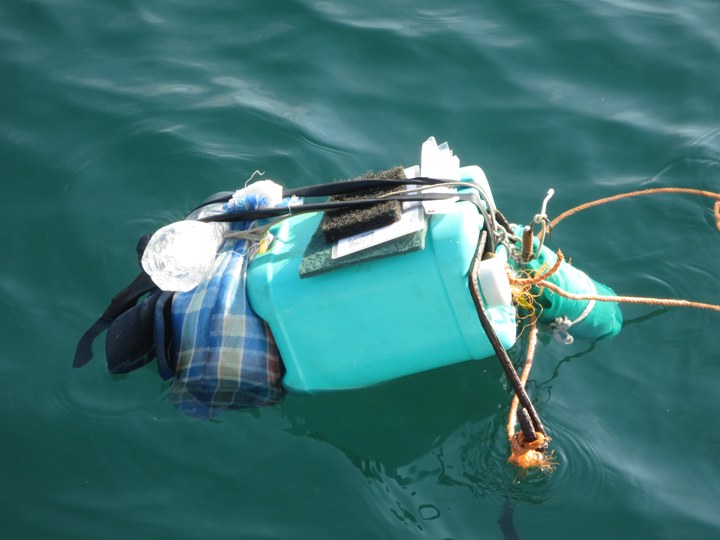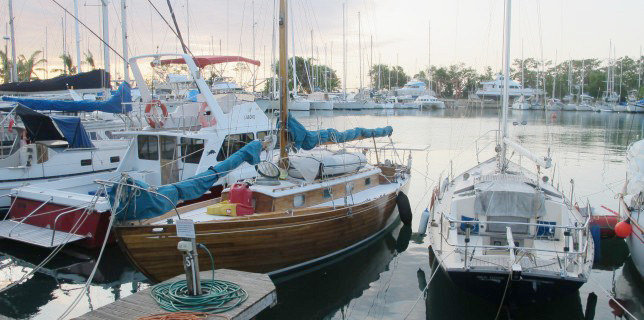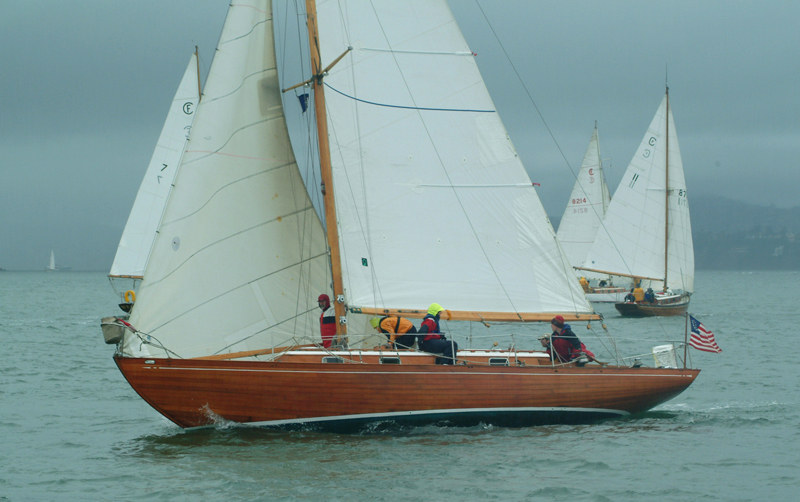
‘Lectronic Photo Quiz

© Latitude 38 Media, LLC
What is this? Send your best guess here.
Zihua Fest Now in Full Swing
The Mexican coastal fishing town of Zihuatanejo is normally thought of by cruising sailors as a pretty sleepy place — especially when compared to busy tourism centers like Cabo San Lucas and Puerto Vallarta. But this week, it’s anything but sleepy, as the streets are abuzz with excitement over the annual Zihua Sailfest.
"The hundreds of hours of planning and preparation have come together, and now the fun begins with the Grand Kick-off party at the Barracuda Lounge," said Sailfest volunteer Pamela Bendall yesterday, "with the live auction starting at 7 p.m. Already the town is a sea of 2013 Sailfest T-shirts and hats and you can just feel the energy everywhere."
Today there’s a low-key pursuit race, followed tomorrow by a sail parade through Zihua harbor and along the beachfront of neighboring Ixtapa.
Although Sailfest includes both shoreside and on-the-water activities that result in lighthearted fun, it also has a higher purpose: providing educational assistance to disadvantaged children in the area. Most if not all Sailfest activities have a fundraising component to them. And those funds go to build and equip rural schools, and even help to fund teachers’ salaries. Why the need for non-governmental support? Many indigenous kids are caught in a classic ‘Catch 22’: They speak non-Spanish indigenous dialects, but in Mexico you have to speak Spanish to attend school — which begs the question: How are these poor kids supposed to learn the national tongue if there are no schools who will teach them? Today, thanks to wide support of Sailfest from sailors, expats-in-residence and local business people, hundreds of young scholars have been put on a path to mainstream education.

To learn more about Sailfest see the event’s website. Tax deductible donations to this worthy cause can be made through the Por Los Ninos Foundation.
Vintage Bay Woodie Sinks in South Pacific
Sad news reached us from the South Pacific late last week: The vintage Farallone Clipper Echo had to be abandoned in open water between Fiji and New Caledonia after she hit an unknown object on January 26. Owner Rob Lehman, who was singlehanding south to Australia at the time, initially thought he might be able to sail 300 miles to reach shelter at New Caledonia before Echo foundered, but had no such luck. He was eventually rescued from his liferaft by local SAR (Search and Rescue) assets.

As he explained in detail in a recent blog post, "There was now ankle-deep saltwater inside the cabin as I rushed around to diagnose the problem. Soon I found that an interior support stay had broken. Echo, as with most old wooden boats, tended to leak at her seams when she was beating upwind. To help remedy this problem she had strengthening stays that ran from the base of the mast up to the chainplates. Her port side stay was broken, and I needed to fix it before I sank in the middle of the night. Over the next four hours (from 3-7 a.m.) I switched back and forth between pumping and mending the stay before I had it cinched up tight. Echo was barely leaking anymore, and I went to sleep with the cabin sole dry and the bilge pump barely running."
But it was only a temporary fix. Eventually the traditional cotton and oakum caulking began to loosen, and Echo took on more and more water. Plus the pump needed constant tending due to becoming clogged by bits of cotton and debris. The solo sailor’s satphone was useless, having fallen onto the flooded cabin floor, and the tillerpilot failed also, causing Lehman to rig an old-school sheet-to-tiller steering system. Finally, after two nights of struggling with almost no sleep, he accepted that he was fighting a lost cause. Lehman, who bought the boat a year ago in Alameda from longtime owner Jack Coulter, activated his EPIRB on January 29.

© Latitude 38 Media, LLC
Echo was one of only 19 Farallon Clippers built by Stephens Brothers Boat Builders in Stockton between the 1930s and early ’60s. Several still race actively on the Bay. This bright-hulled 38-footer was launched in 1955, according to de facto fleet historian Bill Belmont (owner of the FC Credit).
As those who sailed aboard Echo during her half century on the Bay now mourn her loss, we’re reminded of an item that every South Pacific cruiser should keep in his/her nav station: A (nearly-)comprehensive list of Pacific Basin SAR contacts. You’ll find it on our Pacific Puddle Jump website.
